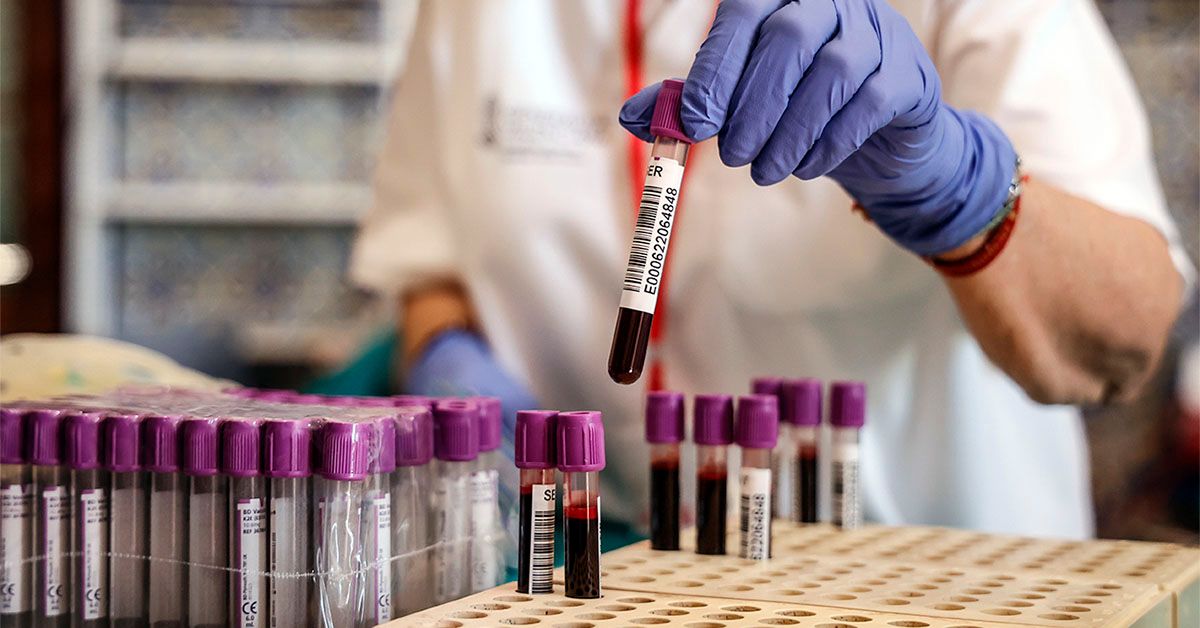Researchers at Lund University have developed a new blood test called PrecivityAD2 that is about 90% accurate in identifying Alzheimer’s disease in people experiencing cognitive symptoms. Early diagnosis is crucial as new treatments that slow the disease’s progression are developed, such as two immunotherapies that have recently been approved in the U.S. For this clinical study, researchers tested the PrecivityAD2 blood test made by C2N Diagnostics, LLC, which measures a combination of two ratios within a blood sample to identify Alzheimer’s disease pathology. The test offers a less invasive, more cost-effective, and accessible alternative to current methods like cerebrospinal fluid tests and amyloid PET scans.
About 1,200 study participants with an average age of 74 years old were tested with the PrecivityAD2 blood test. Of the participants, 23% had subjective cognitive decline, 33% had dementia, and 44% had mild cognitive impairment. Approximately 50% of participants showed Alzheimer’s disease pathology through primary and secondary care testing. The test was about 90% accurate in identifying the presence of Alzheimer’s disease in participants, compared to primary care physicians being only 61% accurate. These results underscore the potential improvement in diagnosis with the adoption of this blood test in healthcare settings and highlight the lack of good diagnostic tools currently available, particularly in primary care.
Verna Porter, MD, a board certified neurologist, and director of the Dementia, Alzheimer’s Disease, and Neurocognitive Disorders at Pacific Neuroscience Institute, noted that early and accurate diagnosis of Alzheimer’s disease can lead to timely intervention and better patient outcomes. The high diagnostic accuracy and robustness of the blood biomarkers in identifying Alzheimer’s disease across primary and secondary care settings are promising for improving early diagnosis and patient management. Validation of the blood biomarkers in diverse international cohorts and further studies comparing diagnostic performance are needed for the next steps in testing the PrecivityAD2 blood test. Understanding the nuances of these biomarkers can help tailor their use to maximize diagnostic accuracy and clinical benefit.
Karen D. Sullivan, PhD, a board-certified neuropsychologist and owner of I CARE FOR YOUR BRAIN, cautioned that reducing brain health diagnosis to lab tests only and forgoing detailed clinical interviews and human-to-human assessments may lead to false positive dementia diagnoses and unnecessary treatments with high risks. She emphasized the importance of respecting biomarkers as one piece of data in a person-centered assessment model and not losing sight of the individualistic nature of brain health diagnosis. Sullivan highlighted that the brain is a unique and complex biopsychosocial system that requires a holistic approach to diagnosis, taking into account the complexity of neuropathological processes and individual differences. By incorporating biomarkers into a comprehensive assessment model, healthcare providers can ensure a more accurate and personalized approach to diagnosing Alzheimer’s disease.
In conclusion, the development of new diagnostic tools such as the PrecivityAD2 blood test offers promise for improving the early diagnosis of Alzheimer’s disease and facilitating timely intervention and patient management. The high accuracy of the blood biomarkers in identifying Alzheimer’s disease pathology underscores the potential benefits of incorporating these tests into healthcare settings. As research continues to validate the effectiveness of these biomarkers in diverse populations and settings, healthcare providers can enhance their ability to diagnose and manage Alzheimer’s disease more effectively. By incorporating biomarkers as part of a comprehensive and personalized assessment model, healthcare providers can ensure a more accurate and individualized approach to diagnosing Alzheimer’s disease.











